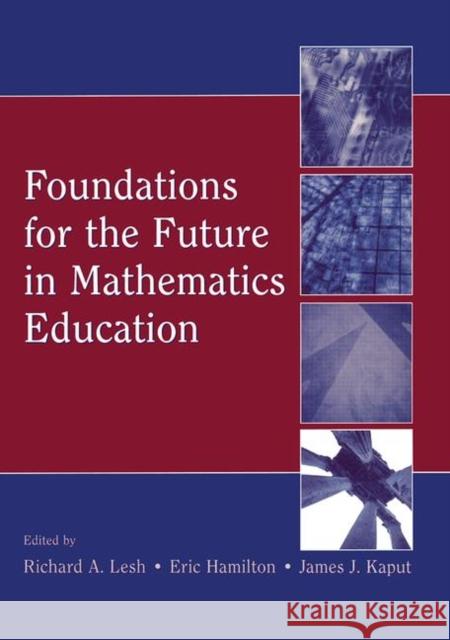Foundations for the Future in Mathematics Education » książka
topmenu
Foundations for the Future in Mathematics Education
ISBN-13: 9780805860573 / Angielski / Miękka / 2007 / 488 str.
Foundations for the Future in Mathematics Education
ISBN-13: 9780805860573 / Angielski / Miękka / 2007 / 488 str.
cena 303,61
(netto: 289,15 VAT: 5%)
Najniższa cena z 30 dni: 299,90
(netto: 289,15 VAT: 5%)
Najniższa cena z 30 dni: 299,90
Termin realizacji zamówienia:
ok. 16-18 dni roboczych.
ok. 16-18 dni roboczych.
Darmowa dostawa!
The central question addressed in Foundations for the Future in Mathematics Education is this:
What kind of understandings and abilities should be emphasized to decrease mismatches between the narrow band of mathematical understandings and abilities that are emphasized in mathematics classrooms and tests, and those that are needed for success beyond school in the 21st century? This is an urgent question. In fields ranging from aeronautical engineering to agriculture, and from biotechnologies to business administration, outside advisors to future-oriented university programs increasingly emphasize the fact that, beyond school, the nature of problem-solving activities has changed dramatically during the past twenty years, as powerful tools for computation, conceptualization, and communication have led to fundamental changes in the levels and types of mathematical understandings and abilities that are needed for success in such fields. For K-12 students and teachers, questions about the changing nature of mathematics (and mathematical thinking beyond school) might be rephrased to ask: If the goal is to create a mathematics curriculum that will be adequate to prepare students for informed citizenship--as well as preparing them for career opportunities in learning organizations, in knowledge economies, in an age of increasing globalization--how should traditional conceptions of the 3Rs be extended or reconceived? Overall, this book suggests that it is not enough to simply make incremental changes in the existing curriculum whose traditions developed out of the needs of industrial societies. The authors, beyond simply stating conclusions from their research, use results from it to describe promising directions for a research agenda related to this question. The volume is organized in three sections:*Part I focuses on naturalistic observations aimed at clarifying what kind of "mathematical thinking" people really do when they are engaged in "real life" problem solving or decision making situations beyond school.
*Part II shifts attention toward changes that have occurred in kinds of elementary-but-powerful mathematical concepts, topics, and tools that have evolved recently--and that could replace past notions of "basics" by providing new foundations for the future. This section also initiates discussions about what it means to "understand" the preceding ideas and abilities.
*Part III extends these discussions about meaning and understanding--and emphasizes teaching experiments aimed at investigating how instructional activities can be designed to facilitate the development of the preceding ideas and abilities. Foundations for the Future in Mathematics Education is an essential reference for researchers, curriculum developers, assessment experts, and teacher educators across the fields of mathematics and science education.











